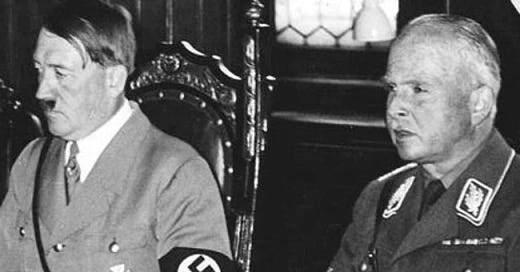Nazi royal was stripped of his titles
Charles Edward was a British prince, but he inherited a German Dukedom and fought with Germany in World War I
It seems a drastic step, to strip the son of a reigning queen of his titles. But it is hard to see how someone like Prince Andrew could be allowed to continue representing his country when there is the possibility of him serving prison time. Andrew is fighting some serious allegations of sexual assault, which could even see him go to prison. While he is innocent until proven guilty, many people suspect the worst, given some of his past wild ways and his friendship with the disgraced, dead, millionaire Jeffrey Epstein, whose girlfriend Ghislaine Maxwell has been found guilty of grooming underage girls for Epstein. Andrew’s reputation, already slightly tainted, is now darkened beyond repair.
It would not be the first time that a member of the English royal family has been censured for his nefarious activities. While there have been some dubious royals over the centuries, some of them drew such hatred from the public that parliament even passed an act to strip them of their English titles. Some were Germans and Austrians who had been given British honours as knights, but two were members of the royal family who clung to their German ancestry, siding with the Kaiser against the King.
One of them was Prince Charles Edward, a grandson of Queen Victoria. He was the son of Victoria’s eighth child and youngest son Prince Leopold, the Duke of Albany. Charles Edward was the youngest of Leopold’s two children, and was born at Claremont House in Surrey in July 1884. Unfortunately Leopold died in March 1884. A haemophiliac, Leopold had gone to Europe for treatment of joint pain where he slipped and fell, dying of a cerebral haemorrhage.
Charles Edward therefore inherited his father’s Dukedom before he was born. He was raised in England until he was 15 when he inherited another title, this time a German one.
It came about as a result of the fact that in 1893 his uncle, Prince Alfred the Duke of Edinburgh and fourth son of Queen Victoria, had inherited the title of Duke of Saxe-Coburg and Gotha from Ernest II, Charles Edward’s paternal (German) uncle (a brother of the late Victoria’s late husband). Prince Alfred’s son died in 1899, forcing Kaiser Wilhelm II to make a decision about who would succeed him. Alfred’s older brother, the Prince of Wales had already renounced foreign titles as heir to the British throne, and a younger brother Arthur, Duke of Connaught, was unacceptable to the Kaiser because he had served in the British Army, while his son refused the title because it would have meant being educated in Germany. So, when Alfred died in 1900 his title, the Duke of Saxe-Coburg and Gotha, passed to Charles Edward, who was sent to be educated in Germany.
Because he was only 15 a regent was appointed, while the boy went to a military academy as a cadet, then studied at Bonn University, before officially becoming a ruler when he came of age in 1905. Despite being a grandson of Victoria, and even earning a knighthood from his uncle Edward VII (who had come to the throne on the death of Victoria in 1901), his loyalties were to the Kaiser (who was his cousin by his paternal aunt Princess Victoria, oldest child of Queen Victoria). While initially he had held some liberal ideas as a supporter of constitutional monarchy, he moved toward being more autocratic.
In World War I, after overcoming a conflict of loyalties and severing ties with his family, he served as a general in command of the German 3rd Army. Rheumatism largely put an end to his direct command of troops in 1915. Germany’s loss and the subsequent revolution at the end of the war forced him to renounce his titles.
But by then he had also been stripped of his English titles. In 1915 King George V (son of Edward VII) took him off the register of Knights of the Garter. In 1917 a Titles Deprivation act was passed in British Parliament to allow them to investigate and formally take away titles of anyone who had “borne arms against his majesty, or who have adhered to his majesty’s enemies”. In 1919 Charles Edward had his titles the Duke of Albany, Earl of Clarence and his Baronetcy of Arklow taken away.
As a private citizen he remained in Germany, despised by the British. As the revolutionary government was swept away and the Germans again started moving politically to the right in the 1920s, Charles Edward was able to regain some of his past wealth. Dissatisfied with his treatment at the end of the war, his autocratic tendencies began to re-emerge and he courted the right wing paramilitary groups that were proliferating in Germany in the 1920s.
In 1933 he became a member of the Nazi Party, rising high in the ranks of the SA, and acting as a Nazi envoy on overseas visits, including attending the funeral of King George V in 1936, in full Nazi regalia. During World War II he served as the head of the German Red Cross and, at the end of the war, suffered the indignity of being thrown into a prisoner of war camp and sent to trial as an “important Nazi.”
He lived his last years in seclusion in Coburg, West Germany, unable to return to Britain he watched the coronation of his relative, Queen Elizabeth II, in a cinema newsreel. He died in poverty in 1954 of cancer.




